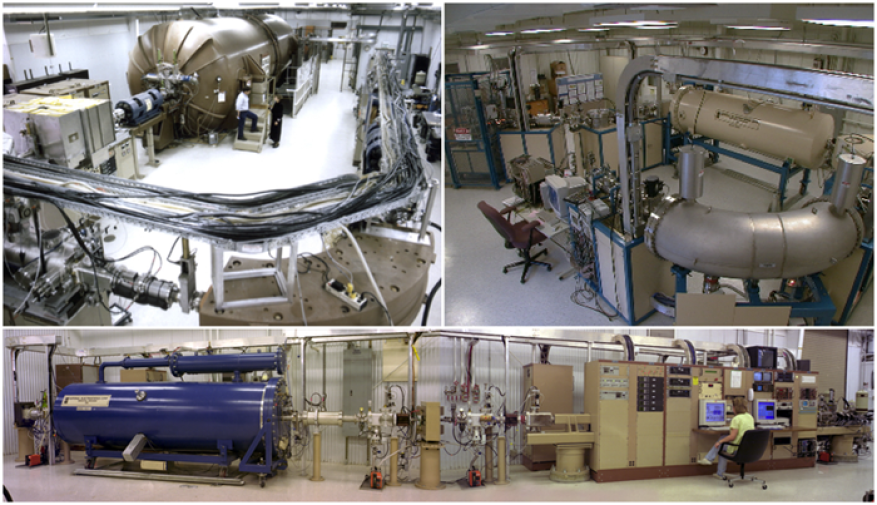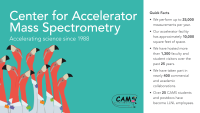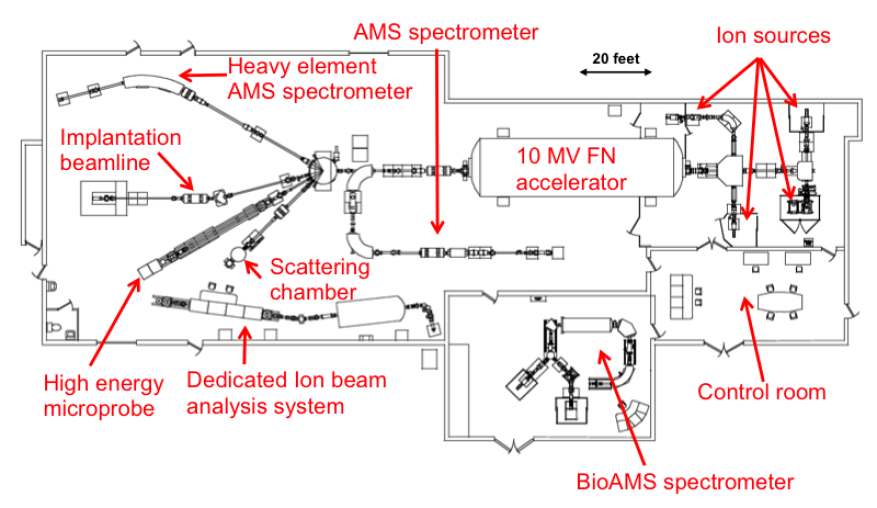Today, CAMS's primary facility is a ~10,000 ft2 building that houses three state-of-the-art, accelerator-based technologies.
CAMS' principal research instrument is a HVEC 10 MV Model FN accelerator. The AMS operations that utilize this accelerator are capable of high-throughput and high-precision analyses of multiple isotopes. This AMS system is the most productive in the world, and produces approximately 25,000 analyses a year for a suite of isotopes. The 10 MV FN accelerator also provides high energy ion beams for materials science and nuclear physics/nuclear chemistry applications. The 1 MV AMS system is based around a NEC 3SDH-1 accelerator and is the principal analytical tool for biomedical carbon-14 research. The third instrument is an ion beam analysis system based around a NEC 5SDH-2 1.7-MV accelerator that is capable of performing quantitative analyses at a spatial resolution down to 1 µm. This instrument is used for materials characterization, environmental and biomedical research, nuclear physics, and national security applications. Collectively, these instruments comprise accelerator-based analytical capabilities that are unmatched anywhere in the world.
CAMS also operates several AMS sample preparation facilities including a laboratory that is dedicated to natural level radiocarbon sample preparation and graphitization and a laboratory that is dedicated to the production of biomedical carbon-14 samples. In addition, CAMS operates separate sample preparation laboratories for geological cosmogenic isotopes and for heavy element isotopes.







